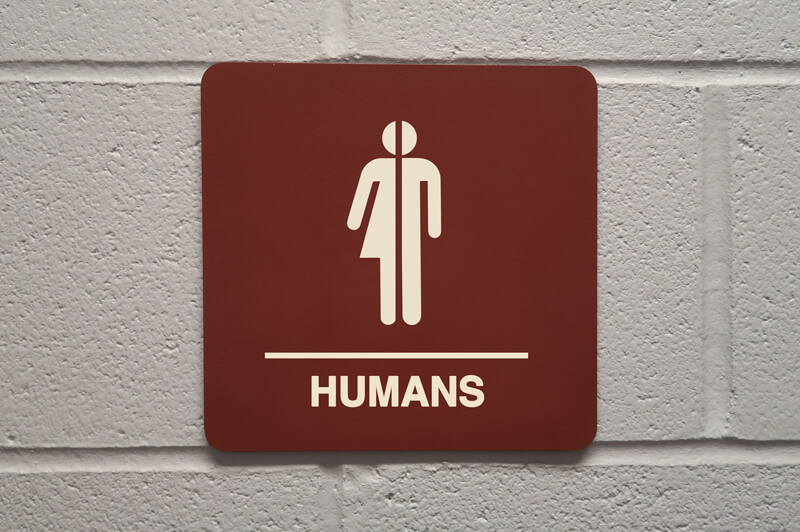Sexual Health – Byron Bay
At The Bright Side Clinic, we understand that sexuality can’t be pigeon-holed. No matter your gender identity or sexual orientation, your sexual health matters to us.
There remains a lot of stigma about sexually transmitted infections, but they are part of life. Sure, we can all take steps to minimise our risk. But we can’t minimise those risks to zero.
That’s why at The Bright Side Clinic, we pride ourselves on our approachable, knowledgeable and
non-judgemental approach to sexual health.
We welcome everyone for this discussion – young and old; male, female and intersex; trans and cis; lesbian, gay, straight and queer; Indigenous Australian, settler Australian, new Australian and visitors alike.
Please note;
We are not a government-funded Sexual Health Clinic.
We cannot offer free STI checks for everyone. Medicare card holders can get STI checks for the same cost as any other GP visit or test, including free for concession holders. If you don’t hold a Medicare Card, please download this information sheet.
There is a Sexual Health Clinic at Lismore where anyone, with or without Medicare, can have free, targeted testing if they are concerned they may have an STI.

STI testing and treatment
- Chlamydia and gonorrhoea
- Syphillis
- HIV
- Hepatitis B & C
- Herpes 1 & 2
Who should get tested?
Everyone should prioritise their sexual health, and this will mean getting tested at some stage. Depending on your sexual activity, you might need to be tested more or less frequently.
Many people use condoms for STI protection as well as contraception. Often, when a relationship becomes monogamous, there is a decision to stop using condoms and, if needed, rely on another form of contraception.
We recommend that both members of a couple have a full STI screen before making the decision to stop using condoms.
The highest rate of STIs like chlamydia are in young adults, which is not unexpected. What you might not expect is that statistics show a second, higher-risk age group and that is age 40-50. People often leave relationships in around that time of life, and have perhaps forgotten the advice they used to know about safe sex.
Symptoms
If you’re single and sexually active, and:
- you have symptoms of an STI like sores, itching, burning urination or discharge
- a previous partner contacts you and tells you they have tested positive for an STI
Then see a doctor as soon as possible.
No symptoms
If you’re single and sexually active and you have no symptoms, but you are worried you could have been exposed to an STI, you should consider getting tested 2-3 weeks after the sexual contact. This is to allow for the incubation period of the most common infections, chlamydia and gonorrhoea.
Testing too early can give a false negative result.
Higher risk group
If you’re in a higher risk group, the recommendation is to have STI testing every 3 months, even if you have no symptoms.
Higher risk groups include:
- Sex workers and their customers
- Sex tourists
- Men who have sex with men
- People who use intravenous drugs
Remember that you take on the risk of your sexual partners. If you don’t identify as a member of a higher risk group, it is valuable to know if your partner does.
What happens when I come in for an STI check?
Your doctor will ask you a few questions to identify what infections we should test for. You don’t have to go in to detail, it is sufficient to know whether you identify as part of a higher risk group. For lower risk groups, the recommendation is to test for chlamydia and gonorrhoea. This can be done with a urine sample, a self-collected swab of the vagina or rectum, or a doctor can collect a swab of the cervix (women) or urethra (men). It takes 24-36 hours to get the results of these tests.
For higher risk groups, the recommendation is to have a blood test as well. Blood tests look for HIV, Hepatitis B & C, and syphilis. Because it can take 3 months for a blood test to show positive for HIV after someone is exposed to the virus, it is recommended to repeat the blood test 3 months after the first blood test.
Herpes Simplex Viruses
There is no screening test for the Herpes Simplex Viruses (HSV). HSV1 causes cold sores, and HSV2 causes genital herpes. However, it doesn’t take much imagination to see why people can get either virus in either place. When first exposed to HSV2, people tend to be unwell with a flu-like illness, and sores. The best diagnostic test is a swab of the actual sores.
Herpes is a virus around which there remains a lot of stigma. You don’t have to be promiscuous or unhygienic to get Herpes, and condoms do not provide protection against this infection. Herpes is managed with medication which can reduce your symptoms during a flare, and minimise your ability to transmit the virus.
Bacterial Vaginosis and Thrush
While BV and thrush are not classed as STIs, they can be flared up by sexual activity and they can interfere with your sex life. Vaginas have a unique microbiome of bacteria and fungi, and they maintain a specific pH that is different to the rest of your body.
Thrush and BV are often caused by things that interfere with either the microbiome or the pH, and treatments are aimed at one of these factors also. If you’ve been struggling with recurrent BV or thrush, come and talk to us.
Post Exposure Prophylaxis and Pre-Exposure Prophylaxis for HIV
There are medications now available to help reduce the risk of transmission of HIV.
PrEP stands for Pre-Exposure Prophylaxis. It is recommended for people who do not have HIV, and are at a moderate or high risk of being exposed to the virus. Taken every day, it reduces the transmission of HIV through sexual contact by 99%.
PEP is Post-Exposure Prophylaxis. It is recommended for people who do not have HIV, and may have been exposed to the virus. The treatment needs to be started within 72 hours of the potential exposure.
Contraception
- Oral Contraceptive Pill
- Implantable contraception eg Implanon
- Mirena and other IUD insertion
- Mirena and other IUD removal
Heavy Periods
While contraception is used to prevent pregnancy, it can also be prescribed for a variety of problems arising from the menstrual cycle. Heavy, painful or erratic periods can really impact on your quality of life and even lead to iron deficiency and anaemia.
Don’t let your menstrual cycle interfere with your life. Come over to The Bright Side and discuss your options.

We welcome everyone – young and old; male, female and intersex; trans and cis; lesbian, gay, straight and queer; Indigenous Australian, settler Australian, new Australian and visitors alike.
